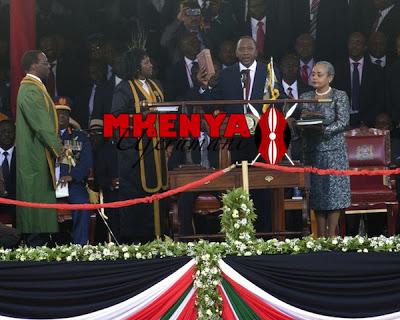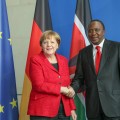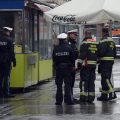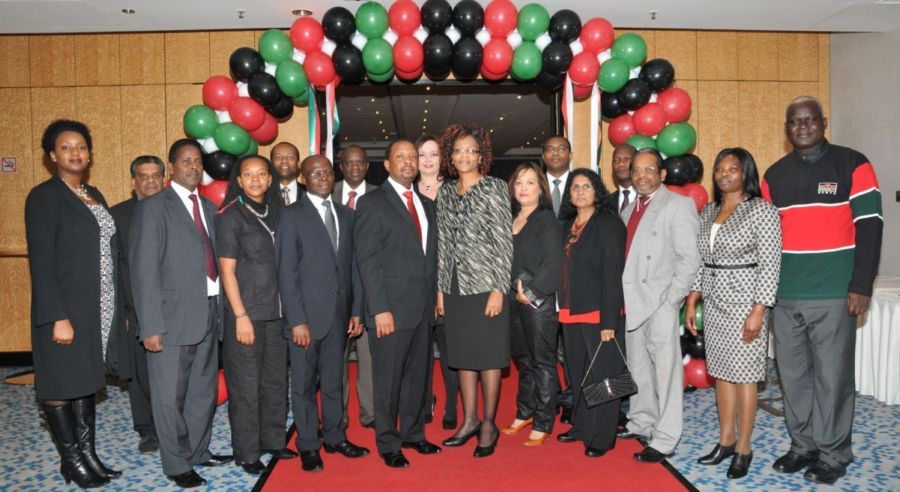
Not every day do you get to be in the company of authentic Kenyan theatre performers, nor Kenya enthusiasts, or awesome Kenyans in Germany for a long weekend. Well, this past weekend, I was privileged to enjoy the company of these wonderful people.
On this day, the young thespians awed the crowd of the Kenyan diaspora, students and professionals and their German counterparts, who were attending the Kenia Seminar in Bonn. The thespians rhythmic dance pulsated to the drum beats, only interjected with the soloist’s choral.
It was a sight to behold, a taste of the rich Kenyan culture at the heart of Bonn. The venue of the performance, Friedenskirche Bonn-Kessenich was lit up, not only by the light illuminating the shadows, and interior architecture, but also of the high spirits of the audience partaking in the drama unfolding on stage.
For this particular evening, the jubilant clapping and ululation stirred the stillness into a pleasant warmth, something close to my heart, my home, Kenya. The ‘Hope Theatre Nairobi’, composed of 10 young people from Kenya, was making its annual German Tour and had already held a performance in Stuttgart and Bochum.
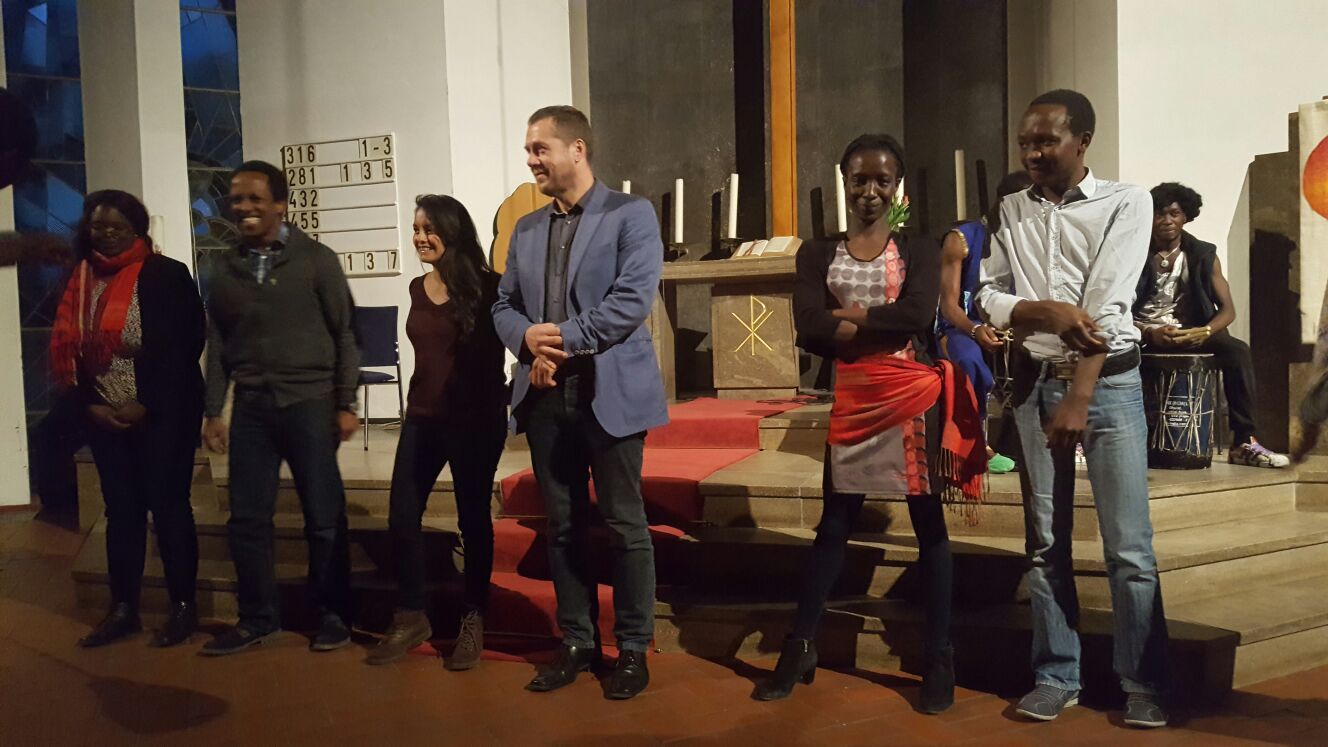
On this particular Saturday evening, their performance was specially tailored for the Kenia Seminar.
Since its inception in 1991, the Kenia Seminar has been a meeting place for the “Kenyan community” in Germany. The conference held after every 18 months brings together people and groups, both Kenyan and German living in Germany, who are in a close relationship with Kenya.
Organised by Dietmar Ernst and Dr. Marko Kuhn, the programme of the Kenia-Seminar handled the recent developments in Kenyan politics, society and economy through presentations and group discussions. This year had a special focus on cultural questions (livelihoods and culture, meaning and impact of African culture).
During the forum, Kenyan scholars and alumni under the auspice of the Katholischer Akademischer Ausländer Dienst (KAAD), echoed an endeavour to be part and parcel of progress at different levels in Kenya, gave insights on how problems such as corruption, ethnic disparities, negative cultural practices can be resolved.
Some of the suggestions included:
- Using the media to put institutional corruption on check through investigative ad incisive Journalism
- Voting for issue based leaders instead of aligning on tribal lineages
- Expression of cultural patriotism and pride of heritage
- Diaspora taking an active role in the social/economic affairs, not just being emitters of monetary remittances
- Engagement with active civil society that puts the state in check
- Doing away with retrogressive cultural practices like Female Genital Mutilation (FGM), valuation of dowry, wife inheritance, ethnicity
- Embracing the Kenyan culture home and abroad
- Being cultural ambassadors through, exchanging cuisine, dress, the warm spirit of Kenyaness
- Finding a melting point where German and Kenyan cultures can be experienced
The recent decision by the International Criminal Court on the case against Journalist Joshua Sang, and Vice President William Ruto formed an interesting part of the discussions. Most participants felt that although the adjournment of the two cases was a welcomed decision, Kenyans should not be quick to celebrate because many victims who suffered during the post -2007 election violence had yet to receive justice.
There was a mutual consensus that most countries in Africa, Kenya included, still needed the international jurisdiction, to address extreme violations to humanity. The Diasporians hoped for a peaceful forthcoming elections and a continued networking and brotherhood abroad.
To this audience, the Hope Theatre group was a thrilling addition. Speaking at the forum, the Hope Theatre Production Director David Nawirie explained that the group was founded in May 2009, following a series of theatre workshops with pupils, teachers and the youth organization under the “Hands of Care and Hope” in Korogocho and Kariobangi.
According to Dr. Marko Kuhn one of the conveners, Stephan Bruckmeier, an Austrian actor, director and author, who lives and works in Stuttgart, facilitated the workshops that saw about twenty young people from different slum areas of Nairobi work under the umbrella organization, “Theatre for Development CBO”. Together with Stephan Bruckmeier Bruck and other European and African theatre artists they develop theatre plays with different national and international themes, traditions and styles.
“The group helps to keep young people out of the streets, horn their talents and contribute to the Kenyan cultural experience”, narrated Nawirie.
Apart from engrossing in cultural folklore, and theatrical appreciation of complex social issues such as refugees, fair trade and synergies between the Kenyan and German culture, it was a weekend of networking, re-connecting to a special memory, special place, connection to home, to Kenya.
The weekend culminated into an exchange and discussion where the talented artists shared moving life stories. More about the Kenya Seminar here.
All in all, it was a weekend well spend.

